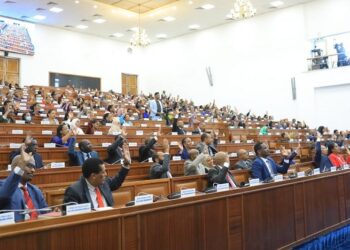In a decisive policy shift, the Ethiopian government has officially ended its longstanding fuel subsidy, fully liberalizing fuel prices to reflect international market rates. The Ministry of Trade and Regional Cooperation confirmed that gasoline and jet fuel prices were deregulated as of May 9, 2025, followed by diesel on June 4, 2025.
The reform marks the culmination of over a decade of phased efforts to wean the economy off costly fuel subsidies. Officials argue the move is essential for curbing illicit fuel smuggling, addressing widening fiscal deficits, and correcting market inefficiencies caused by distorted price signals.
Why Now?
The government had maintained fuel prices far below global averages for years, resulting in large fiscal burdens—estimated at over 100 billion birr annually at peak levels—and incentivizing widespread smuggling to neighboring countries like Sudan, Djibouti, and Kenya. The widening gap between the official pump price and black-market value further strained Ethiopia’s already tight foreign currency reserves.
The latest step is also part of a broader economic reform package supported by the International Monetary Fund (IMF) under the Extended Credit Facility (ECF). Aligning domestic prices with global benchmarks was one of the program’s structural benchmarks aimed at fostering transparency, market discipline, and external sector stability.
What’s Changing?
With the subsidy gone, the government will no longer set fixed fuel prices. Instead, prices will now adjust regularly based on international oil prices and forex auction rates. For reference, the National Bank of Ethiopia’s most recent foreign exchange auction rate stood at 136 birr/USD, while black-market rates continue to hover above 160 birr/USD, reflecting persistent exchange rate misalignment.
In early June, average fuel prices in Addis Ababa rose by over 40%, triggering immediate impacts across transport, logistics, and commodity markets. Inflationary spillovers are expected in the short term, especially in urban areas reliant on diesel-powered public transportation and logistics.
Social Safety Net and Public Response
Acknowledging public concerns, the government has pledged to roll out targeted social protection programs for low-income households and public service sectors such as public buses and agricultural cooperatives. However, implementation details remain vague.
Regional Context
Ethiopia joins a growing list of African nations—such as Nigeria, Ghana, and Angola—that have either removed or reduced fuel subsidies as part of broader fiscal and economic reforms. While such reforms are often painful in the short term, proponents argue they are necessary for building resilient, self-sustaining economies.
The end of fuel subsidies is expected to reduce pressure on public finances and improve forex availability in the long run. However, the transition period is likely to be turbulent. Authorities face the challenge of managing inflation, maintaining supply chain stability, and communicating effectively with a skeptical public.
Ethiopia’s move comes at a time of broader structural shifts, including the push toward a market-determined exchange rate regime, monetary tightening to fight inflation, and renewed efforts to attract private investment into energy and infrastructure sectors.
In short: the end of the fuel subsidy is a bold but risky reform. If managed well, it could mark a turning point toward a more transparent and efficient economy. If mishandled, however, it could spark social unrest and deepen economic hardship in the short term.





















